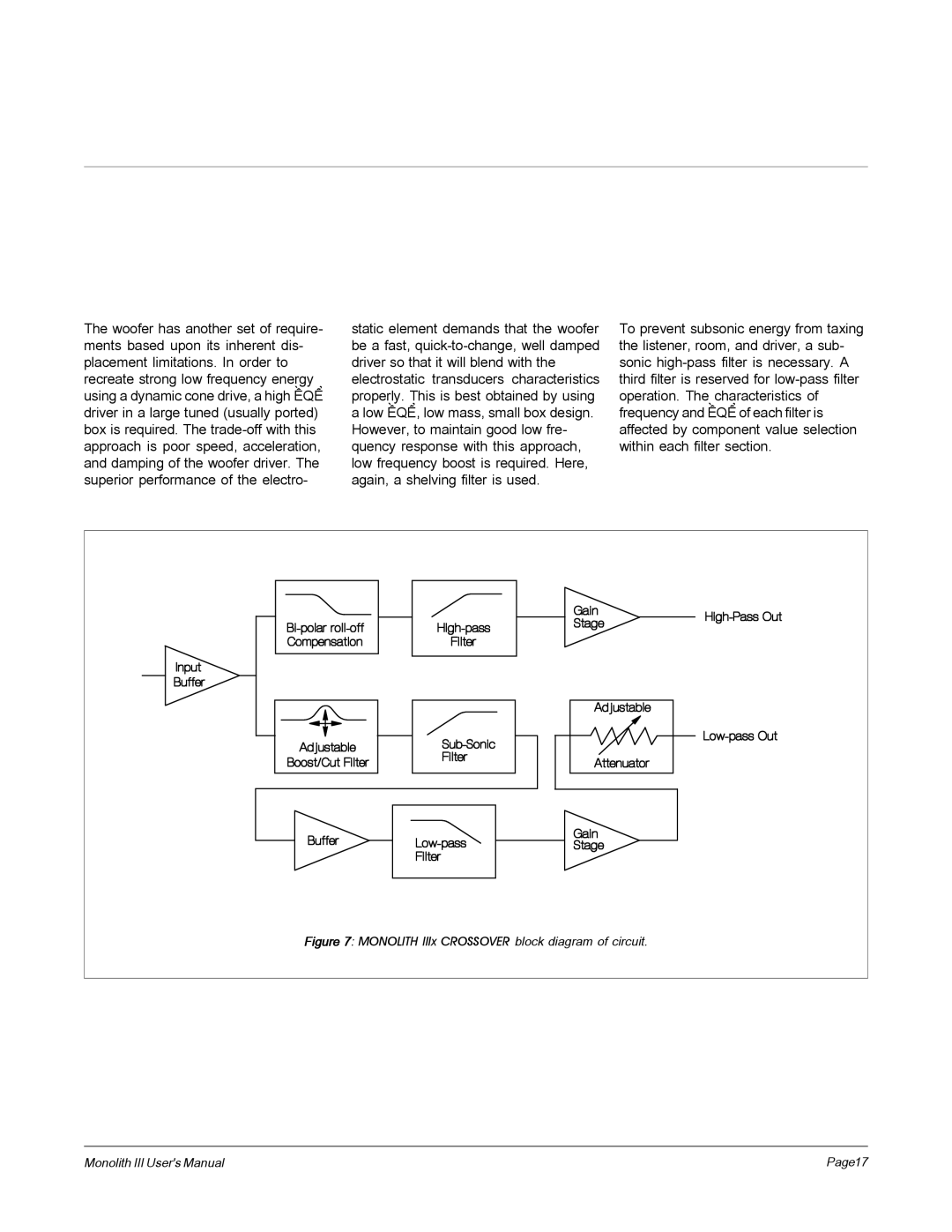
The woofer has another set of require- ments based upon its inherent dis- placement limitations. In order to recreate strong low frequency energy using a dynamic cone drive, a high “Q” driver in a large tuned (usually ported) box is required. The trade-off with this approach is poor speed, acceleration, and damping of the woofer driver. The superior performance of the electro-
static element demands that the woofer be a fast, quick-to-change, well damped driver so that it will blend with the electrostatic transducers characteristics properly. This is best obtained by using a low “Q”, low mass, small box design. However, to maintain good low fre- quency response with this approach, low frequency boost is required. Here, again, a shelving filter is used.
To prevent subsonic energy from taxing the listener, room, and driver, a sub- sonic high-pass filter is necessary. A third filter is reserved for low-pass filter operation. The characteristics of frequency and “Q” of each filter is affected by component value selection within each filter section.
Figure 7: MONOLITH IIIx CROSSOVER block diagram of circuit.
Monolith III User's Manual | Page17 |

